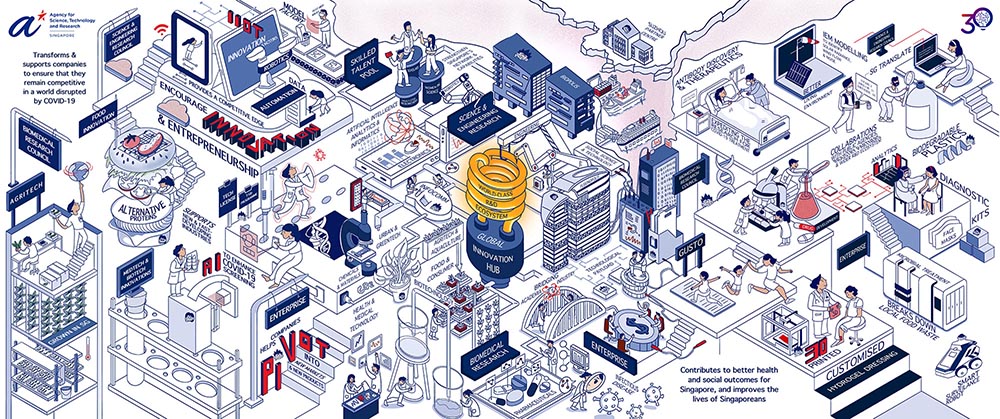Singapore Research Team Creates World's Largest Genetic Databank of Asian Populations
resized.jpg?sfvrsn=bb207bab_3)
Three of the authors from the study published in the journal Cell, from left: Prof Liu Jianjun (Deputy Executive Director of GIS, and Professor at Yong Loo Lin School of Medicine, NUS), Prof Patrick Tan (Executive Director of GIS, and Director of SingHealth Duke-NUS Institute of Precision Medicine, PRISM), and Prof Cheng Ching-Yu (Principal Clinician Scientist at the Singapore Eye Research Institute, representing the study’s participating cohorts).
A*STAR’s Genome Institute of Singapore (GIS) and its partners from the research and clinical communities in Singapore have completed the world’s largest sequencing analysis of multi-ethnic Asian populations. This milestone study provides valuable insights on the unique diversity of largely understudied Asian populations, that could enable more accurate diagnosis of genetic diseases, empower the research of chronic diseases and guide prevention and targeted therapies. The study was published in top biomedical journal Cell on 17 October 2019.
Worldwide, whole-genome sequencing is increasingly used in research and healthcare to identify genetic variations using cutting-edge technologies that allow large numbers of individuals to be sequenced rapidly. This new study contains the completed whole-genome sequencing data of close to 5,000 Singaporeans, comprising three major ethnic groups (Chinese, Malay, and Indian), that will serve as a genetic reference on the local population for subsequent studies.
Professor Patrick Tan, Executive Director at GIS, Director at SingHealth Duke-NUS Institute of Precision Medicine (PRISM), and Professor at Duke-NUS Medical School, said, “The project provides a pilot genetic map of Asian populations that allows us to measure precisely the genetic contribution to disease, and combine it with other sources of data within a data-driven healthcare system. Potentially, this will provide insights to prevent disease before it occurs, diagnose disease earlier, and ensure that therapies are deployed in a way that maximises clinical benefits while minimising adverse effects. This will benefit both Singapore and the Asian population at large by providing more effective and efficient healthcare services.”
This study was a collaboration among scientists and clinicians from A*STAR’s GIS, National University Health System (NUHS), Singapore Eye Research Institute (SERI), Tan Tock Seng Hospital (TTSH), National Neuroscience Institute (NNI), Khoo Teck Puat Hospital (KTPH), National University Hospital (NUH), SingHealth Duke-NUS Institute of Precision Medicine (PRISM), National University of Singapore (NUS) and Singapore General Hospital (SGH).
To read the media announcement, click here.
Media Coverage:
- The Straits Times: Singapore team creates biggest Asian genetic data bank
- TODAY Online: First genetic databank in Singapore to help healthcare practitioners in Asia make more accurate diagnosis
- Lianhe Zaobao: Local scientists have established the largest Asian population genetic data bank, nearly 5,000 people have been studied in the past two years


.png?sfvrsn=a750a98f_0)






